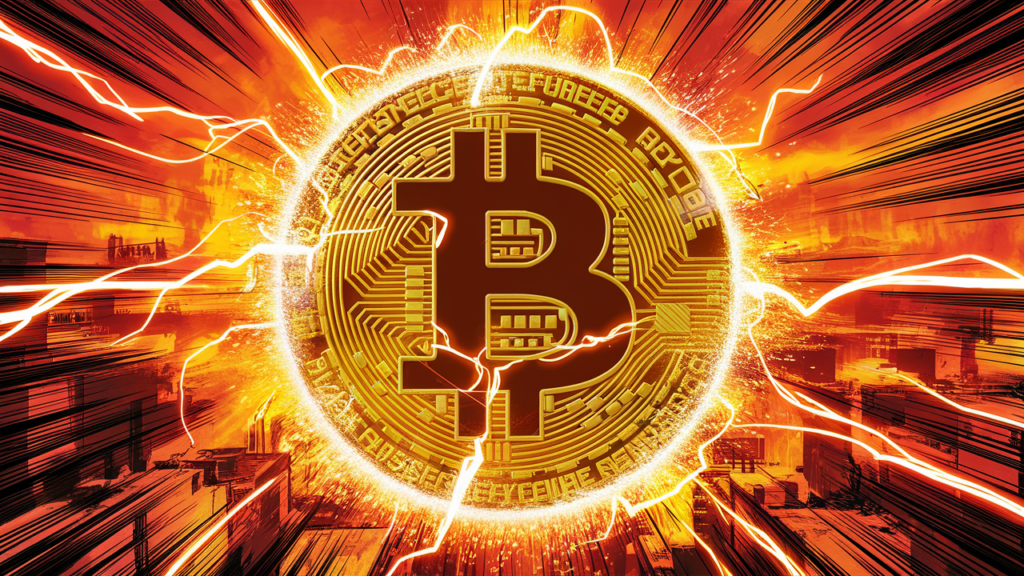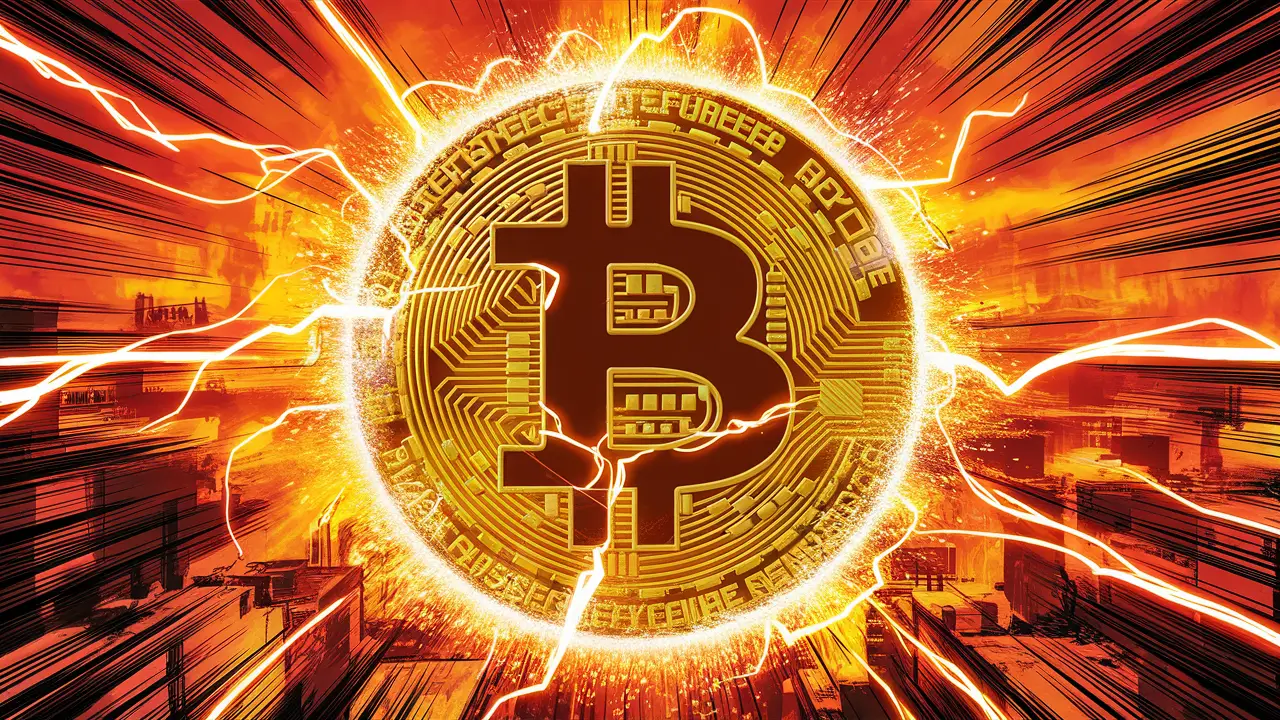Wednesday, May 29, 2024 ▪
8
min reading ▪ acc
Is Bitcoin the solution to all evil? Are we asking too much of this currency, which is increasingly seen as the absolute store of value?

Money and the economy
We often hear the phrase “fix the money, fix the world,” suggesting that economic success is primarily a monetary trick.
Some “Austrian economists” even believe that a fixed money supply (using Bitcoin) is enough for us all to live in abundance.
More seriously, abundance comes from productivity (the amount of things produced per person). Productivity that is achieved by means of machines, and therefore energy, and not the fanciful miracles of an absolutely fixed money supply.
From a physical point of view, the economy is a dissipative structure driven by a constant flow of energy. Human beings are also dissipative structures. We need energy in the form of food calories so we don’t get exposed.
And just like we can’t just rely on lettuce, the economy requires different sources and forms of energy. Uranium is a source of nuclear energy; gas, oil and coal are sources of chemical energy; dams are a source of potential energy; the sun is the source of radiant energy and the earth’s core is the source of thermal energy.
These energy sources can be used as they are or converted into other forms of energy. For example, fossil fuels are burned in thermal power plants to heat water. The water vapor makes it possible to rotate the rotor (mechanical energy), the rotation of which creates a magnetic field enabling the generation of energy in electrical form.
Over 80% of our energy comes from gas, oil and coal. And only 20% of the energy is converted into electricity!
The low prevalence of electricity is due to the fact that the direct use of fossil fuels is necessary for the construction of paved roads, steel bridges, power lines, cement, herbicides, fertilizers, mechanical greases, plastics, etc.
Many industrial processes that support the economy require the chemical and thermal properties of fossil fuels. In short, electricity alone is not enough. To extend the metaphor, electrons cannot be eaten.
Energy constraints and inflation
It will be very difficult, if not impossible, to reproduce all the services provided by fossil fuels with electricity. Reducing their consumption will result in fewer goods and services per person on average.
In fact, this has been the case in the West almost since 1973, the date of the first oil crisis. Things have gotten even more complicated since 2007, the date of peak conventional oil (ie oil that is easily extracted).
It is no coincidence that Western living standards have been collapsing since the 1970s. The United States actually ended the gold standard due to an explosion in the trade deficit directly caused by peak oil reached in 1971.
Washington was able to maintain its standard of living with a geopolitical masterstroke masterminded by Henry Kissinger: the petrodollar. But that’s another story.
The price of a barrel today is 26 times higher than in 1971… The recent discovery of the equivalent of 15 years of global consumption in Antarctica will not change the situation. Extraction of this oil requires $300 a barrel, compared to almost four times less today. That would cause a lot of inflation…
Developed countries have other sources of energy, but this is not enough to generate the exponential growth that our exponential debt, or fiat, system requires.
We must realize that our energy consumption is growing at an extraordinary rate of around 2.4% per year. This means that in the next 30 years we will use as much oil, gas and coal as we have since the dawn of civilization.
Will we succeed or should we prepare for more inflation instead? Don’t miss our article on this topic: Bitcoin and Infinite Inflation.
As Michael Saylor recently stated to justify Microstrategy’s investment in Bitcoin:
“The official rate of inflation does not correspond to reality, which means that the GDP numbers are not true either. You don’t measure real GDP unless it’s adjusted for inflation. The CEO of Microsoft made a very discreet remark that went unnoticed. He said that at face value, people perceive the economy as growing, but once you get the rate of inflation right, the economy is actually declining. »
Energy decline and bitcoin
China and India have based their recent growth on increasing coal consumption. On the other hand, the West, with its focus on electricity, rather expects the peak of fossil fuels.
This transition will not be smooth (inflation). Most people don’t realize that industry and transportation are sectors that use very little electricity.
Electricity represents only 13% of the total energy consumed by industry. Blast furnaces, for example, need very high melting temperatures, which can be achieved at lower cost by direct combustion of coal and gas. Electric arc furnaces can be used to make steel, but this is only worthwhile where there is enough electricity.
The situation is even worse in transport – the central pillar of the economy – which is 95% fueled by oil. Replacing the entire world fleet with electric cars is a pipe dream due to the huge amount of copper, lithium, neodymium and other rare earths that would need to be mined and recycled.
The world will have to produce much more nuclear electricity (which is only 2% of the energy produced on Earth) AND slow down. It will also be necessary to “close the loop” with fourth-generation reactors. Countries that are least well prepared for the inevitable decline of fossil fuels will be the worst hit.
Can bitcoin get us out of this trap? No. There is no oil, lithium, cobalt, copper, nickel or graphite in the blockchain.
On the other hand, it is an absolute store of value that will not stop attracting attention as energy constraints translate into inflation. Ongoing geopolitical/trade tensions and the fragmentation of the global payment system are also a boon.
And as with any global monopoly (Microsoft, Google, Amazon, etc.), the early investors in Bitcoin’s technological breakthrough will thrive on their way to a $10 trillion capitalization before the end of the decade!
Maximize your Cointribune experience with our “Read and Earn” program! Earn points for every article you read and get access to exclusive rewards. Register now and start reaping the benefits.
Click here to join “Read and Earn” and turn your cryptocurrency passion into rewards!
Report on Bitcoin, “Goddess of wisdom, feeding on the fire of truth, exponentially smarter, faster and stronger behind a wall of encrypted energy”.
